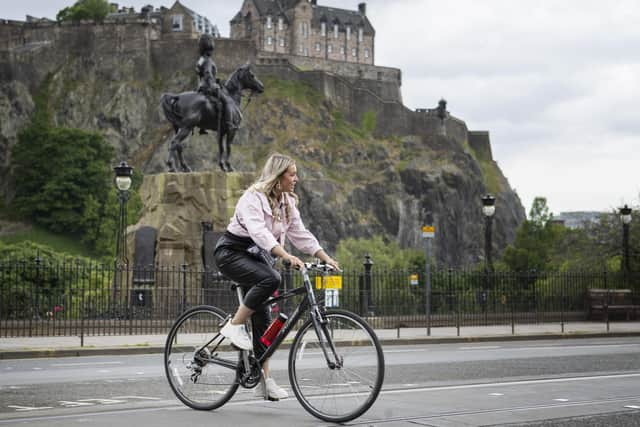Lack of cycle lanes prevents almost two-thirds from climbing on bike
Cycling Scotland, an organisation set up to promote safe cycling across the country, found 35 per cent of the nations residents use a bicycle for transport or leisure, a 30 per cent increase compared to 2017.
But the data showed 61 per cent of cyclists who took part in the survey said a lack of traffic-free cycle routes puts them off cycling more often.
Advertisement
Hide AdAdvertisement
Hide AdOne in five (20 per cent) participants in the research also said they have nowhere to store their bike.


The number of people citing the environment as a reason why they cycle more often has more than doubled since 2017, rising from 12 per cent to 28 per cent this year.
The study also showed four in 10 (39 per cent) 18 to 24-year-olds are now cycling for everyday journeys compared to 23 per cent four years ago, a rise of 70 per cent.
But parents have shown concern about the safety of their local roads in Scotland for their children.
According to Cycling Scotland’s research, 70 per cent of parents rate their roads negatively for cycling, with one in six (16 per cent) saying that the roads are “extremely unsafe” for young cyclists.
Keith Irving, chief executive of Cycling Scotland, said: “With 35 per cent of the population cycling for transport or leisure, it’s encouraging to see cycling becoming a much more common way of getting around and getting exercise.
“As well as helping people feel healthier and happier, swapping the car for the bike remains key in tackling the climate emergency.”
He said to make cycling in Scotland more accessible to people, access to bikes and storage, both at home and at in public or work spaces, needs to be improved.
Advertisement
Hide AdAdvertisement
Hide Ad“We can see in our research that roads being too busy is one of the biggest barriers to cycling, we need to reduce vehicle traffic in shopping and residential streets, in line with the welcome Scottish Government commitment to reduce vehicle kilometres by 20 per cent by 2030,” he said.
“To make our roads safer, particularly for children, a network of dedicated cycling lanes, separated from traffic, is the biggest priority.
“And every journey cycled will make a difference in cutting emissions in a just transition to Net Zero.”
Cycling Scotland’s survey, funded by Transport Scotland, interviewed 1,029 participants between August and September this year to better understand current attitudes towards cycling in the country.